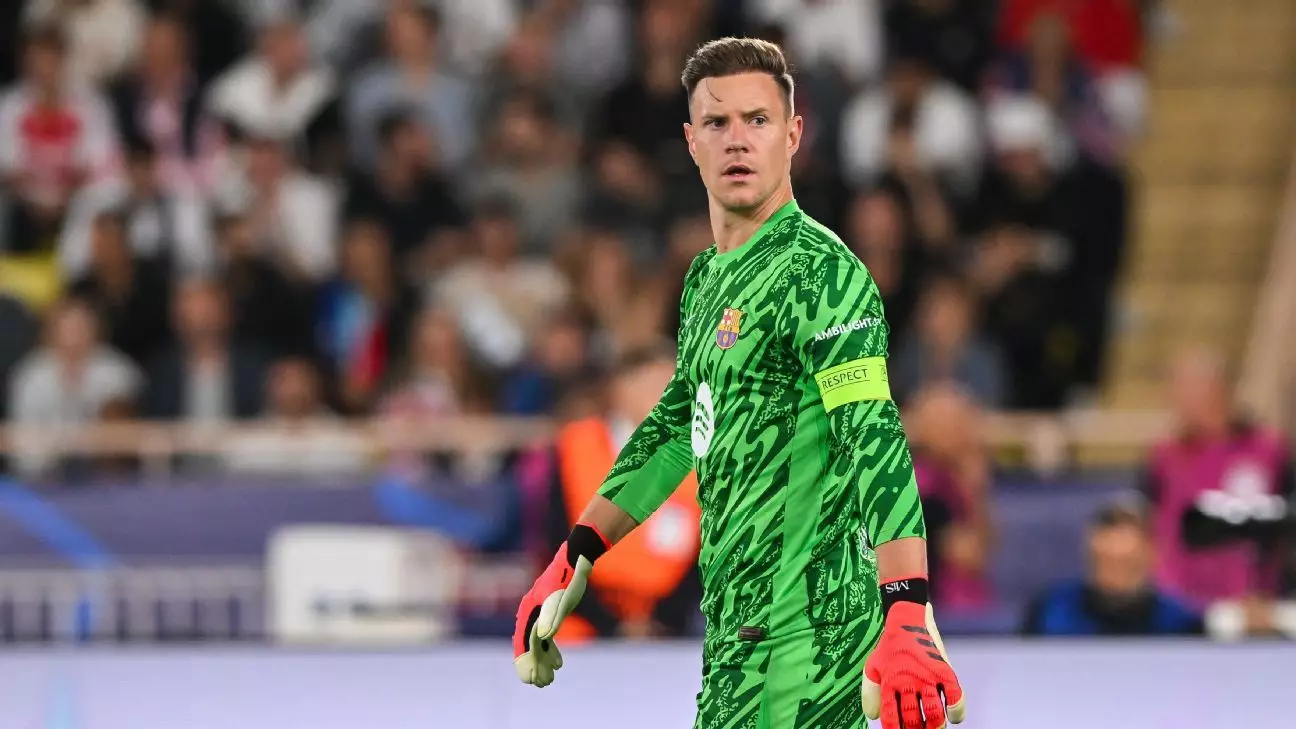In the complex world of professional sports, the balance between a player’s rights and a club’s operational needs often sparks contentious debates. Barcelona’s ongoing struggle with goalkeeper Marc-André ter Stegen exemplifies this tension. After the German international underwent lower back surgery, the club sought access to his medical data to utilize LaLiga’s injury regulations and optimize squad registration. Yet, Ter Stegen’s unwavering refusal to authorize sharing of his medical information has placed Barcelona in a difficult, ambiguous position.
This scenario raises critical questions about player autonomy versus club interests. The club’s reliance on LaLiga’s emergency injury rule to free up salary capacity hinges on accessing and processing sensitive medical data, data that Ter Stegen rightfully considers private. His decision underscores an essential ethical boundary: a player’s right to confidentiality must be respected, even when legal or financial advantages are at stake. Yet, from a pragmatic perspective, this refusal may hinder the club’s ability to make strategic roster decisions, potentially affecting their competitiveness in the upcoming season.
The broader implication here is that clubs and players must navigate a gray zone where legal rules, personal rights, and collective interests intersect. The integrity of medical confidentiality should not be compromised lightly, but neither can clubs be perpetually hamstrung by privacy concerns when their operational efficiency depends on it. This case challenges the football hierarchy to consider whether existing regulations sufficiently balance these competing priorities or if reforms are necessary to clarify the scope of information sharing in injury management.
Legal Strategies and Ethical Considerations: A Clash of Priorities
Barcelona’s internal deliberations reveal a willingness to explore all possible legal avenues, including disciplinary measures and fines, to compel cooperation. Such approaches, however, carry significant ethical baggage. Penalizing a player for safeguarding personal health information could set a worrying precedent, potentially deterring athletes from maintaining control over their data. It invites a dangerous narrative where personal privacy becomes subordinate to administrative convenience, risking the erosion of fundamental rights.
Nevertheless, the club’s urgency to register new signings like Joan García and Marcus Rashford underscores the critical need for pragmatic solutions. The reliance on LaLiga’s injury rule, which permits salary and registration flexibility if a player is sidelined for at least four months, is a controversial but pragmatic route to bolster squad competitiveness. But this pathway is only effective if the necessary medical information can be legally disclosed—a point that Ter Stegen’s stance directly challenges.
This situation showcases the tension between legal compliance and ethical integrity. Is it fair for a club to push the boundaries of privacy laws to achieve registration goals? Or should player sovereignty always take precedence, regardless of sporting pressures? The answer hinges on a broader debate about athlete rights and the extent to which clubs can or should access personal health data, especially when such data can influence contractual and financial arrangements.
The Future of Player-Club Relations: Trust, Transparency, and Respect
The underlying issue here extends beyond mere legalities and into the realm of trust. The fallout from this dispute could set a tone for future player-club relationships, influencing how transparent and respectful interactions are managed in high-stakes environments. If clubs are perceived as overreaching into personal privacy, players might become more guarded, potentially complicating medical management and contractual negotiations.
Barcelona’s approach to this dilemma will likely become a case study for sports organizations worldwide. It tests whether the industry can reconcile the necessity for operational efficiency with the unwavering respect for individual rights. The club’s contemplation of disciplinary actions and fines, while perhaps tactically motivated, risks alienating players and damaging morale. Conversely, players need assurances that their autonomy and dignity are prioritized alongside their contributions to the team.
Optimally, this scenario advocates for clearer policies that define the boundaries of medical data sharing, emphasizing transparent communication and mutual consent. Only through trust, respect, and well-structured legal frameworks can clubs create an environment where athletic excellence and personal rights coexist harmoniously. Barcelona’s current predicament underscores not just a local challenge but a universal issue facing professional sports teams striving to maintain competitiveness without compromising ethical standards.

